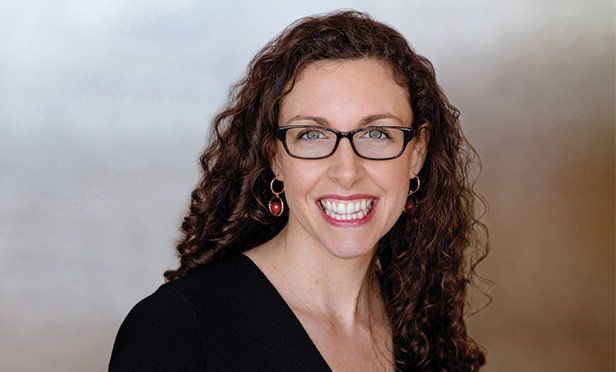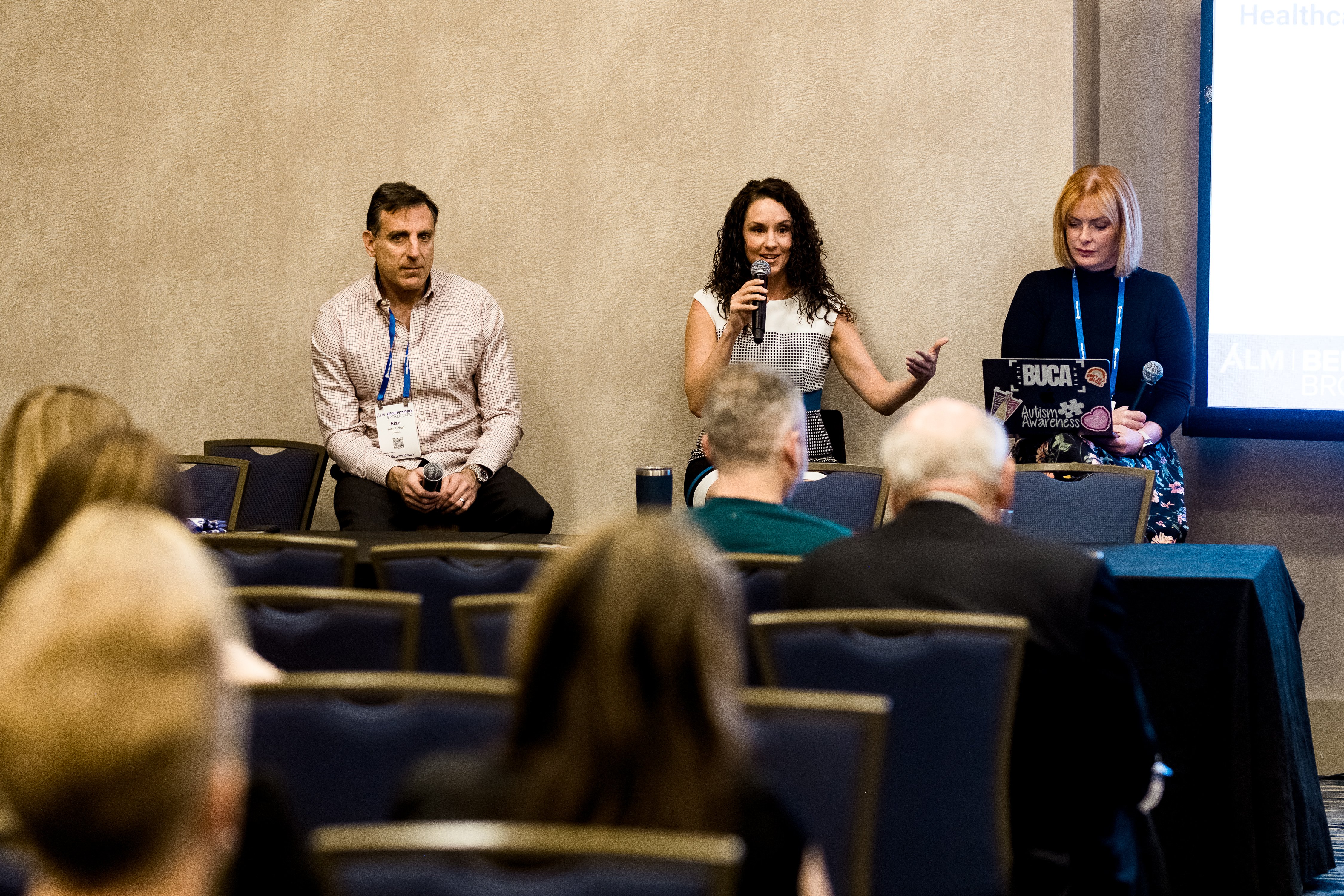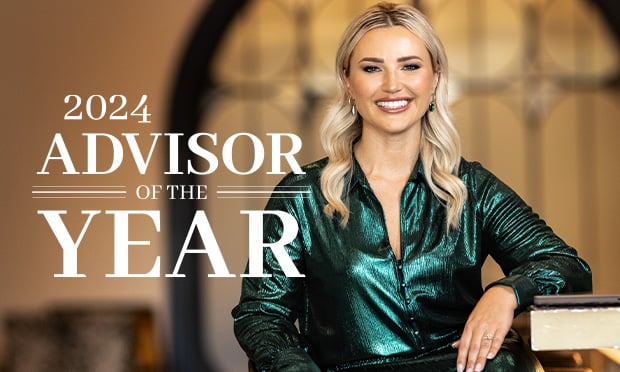 Megan Cook is thefounder and CEO of Adept Benefits, which aims to break the cycle ofannual cost increases and make sure employers get the value theypay for.
Megan Cook is thefounder and CEO of Adept Benefits, which aims to break the cycle ofannual cost increases and make sure employers get the value theypay for.
Paul Wilson: How did you get your start in the benefitsindustry?
|I started in health care when I was five. My mom was thedirector of nursing at a long-term care facility, so I volunteeredgrowing up and absolutely loved it. After college, I wasconsidering going back to school for nursing, but my dad said, “Whydon't you use your business degree?” So I put my resume out in theworld, got a call from Xerox and was hired for a sales position. Idid that for three or four years, but a mentor of mine who workedin the P&C business said, “You love health careand you're good at sales; why don't you look into benefitsconsulting?” I was hired at a big brokerage as an accountexecutive, and I've been in the industry ever since.
|PW: How has your journey so far helped shape yourmindset as a broker and business owner?
|From a cultural perspective, I've learned that I want to haveaccountability internally, but also for our clients. Anotherpriority is flexibility. Our employees are not expected to clock inand out at 8 and 5. They know what their responsibilities are, andthat may mean you come in after you drop your kids off at school oryou leave at 3 to pick them up. Maybe you have a dentistappointment or you want to go to Orangetheory at lunch. That'stotally fine. We trust our employees to make good decisions.
|Another area I focus on is passion. At some firms, there is acertain way to do things and job descriptions have to fit withinboxes. It doesn't allow a lot of room for creativity or foremployees to be passionate. We're a small and nimble company and sowe give the employees the opportunity to shape what they want fromtheir career.
|PW: What are the biggest opportunities for innovativeadvisors in the space right now?
|I think the biggest opportunity is to educate pretty mucheveryone we come into contact with in the health care space. Wedon't have to get super granular, but there are three key aspectsof health care: efficacy, cost of care and quality. And all threeof those elements are broken. So we've been really focused oneducating both clients and prospective clients to help themunderstand what's truly going on. It's pretty overwhelming andclients are completely shocked. The opportunity is around educationand spreading the message that there's hope, that health care canbe fixed. There are companies that are doing this for theiremployees; it's not a quick and easy fix, but it's absolutelydoable and the outcome is unbelievable.
|PW: How receptive are clients to theseideas?
|It depends on the industry and how much they've experienced thebrokenness of the system. I recently started working with aconstruction company with about 300 employees. They experienced a45 percent increase last year, so they spent the time to learneverything we could teach them. Now, we're walking them through theprocess to achieve better health care at lower costs.
|If I walk into a different client, even in the same industry,and their costs have been relatively flat for a few years, it's adifferent conversation. And quite honestly, I'm finding that ifcompanies are not willing to invest the time and energy to gothrough this process, then they're probably not the right fit. It'sbeen an adjustment as a salesperson and a business owner.
|I recently had two meetings with a prospect, and in my heart, Iknew they wanted to stay in their HMO plan. It's not a great planand the costs are pretty high, but for whatever reason, there's notenough momentum for them to change. So that's just not the rightclient for us. It needs to be a true partnership.
|PW: What are some of the challenges of being a pioneerin this space?
|The amount of time we spend on cases like these is probablydouble what we'd spend on a fully insured plan with a PPO. It takesmore time and energy for us to provide all this value. And trulychanging a client's health care plan requires a culture change aswell as change management internally, which takes more time ontheir end. If you want to do this right, you have to invest moretime.
|PW: What are the biggest changes you're watching rightnow?
|I try not to think too big, because it's too much. It's toooverwhelming. There are so many players involved in this right now,with the possibility of Medicare for All and so much money beinginvested in health care. I would be absolutely shocked if ourcountry went to Medicare for All, so I don't see that as a loomingthreat. What concerns me more is the fact that when I meet withprospective clients, it's the first time they've heard thesestrategies and ideas. I've been living and breathing this stuff forthe past few years and that's a long time for the majority of thebrokerage community to not have caught up. That's a little bitshocking.
|Many economic advisors predict we're going into a recessionsoon. So in terms of opportunity, business owners' margins aregoing to get a lot tighter in the next 18 to 24 months. There's ahuge opportunity there. Many economic advisors think we could evenbe headed for another Great Depression. To me, if health care couldbe fixed, that could turn the entire ship around. It's such a hugepart of the economy. We're on a bad path unless something changessignificantly. That's why I feel the pressure to get the messageout as much as I possibly can. That feels almost too big, but atthe same time, I have a son who's now eight months old and the waythings are looking now, he's going to know a very different worldthan what I've known.
|PW: Are you optimistic things can be fixed? It's easy toget discouraged.
|To be honest, I think I'm optimistic 50 percent of the time andthen the rest of the time, I wonder if it's really possible. Thereason I'm optimistic (when I am) is because the opportunities fortechnology in health care are absolutely endless. If we could getthe politics out of health care, which I know is a huge ask, I feellike it could be possible. Every day, I go out and try to educatepeople in the hopes we can change it. It's an uphill battle; amarathon.
|PW: It helps there's a lot more collaboration these daysamong brokers.
|You're 100 percent right. I recently looked up someone onLinkedIn because I knew he'd just implemented a big tech company indowntown Seattle and used some very innovative outside-the-box plandesign. So thinking of a tech company I'm currently working with, Iwanted to figure out how it worked. We're having lunch next weekand he's going to share with me everything he did and how it went.It's quite possible he could co-consult on this prospect with me.We haven't even met in person yet; this all occurred throughLinkedIn messaging and he said he'd be happy to help with the caseand even gave me his cell number to call with any questions.
|PW: What are your favorite things about yourjob?
|I absolutely love the strategy and the dynamics you have toconsider when implementing a health care program. It's not juststrictly the benefits, it's the recruiting and retention, it's theculture, it's the industry. There are so many facets. I lovestrategizing and thinking dynamically like that. I also love theexecution and seeing the results of the hard work you've pouredinto a program. I also love my clients; I've worked with a lot ofthem for eight or 10 years. They've been with me for a very longtime and I just adore them. I have seen their kids graduate fromcollege. But my clients stay with me because of the results firstand the relationship second. And recently, there's just so much tolearn in our industry. It's a really fun time.
|PW: What does the word 'disruption' mean toyou?
|When I think about disruption, I think about the fact that inorder to implement many of these new types of programs, there willbe some disruption. There are a few programs or vendors you canimplement without any disruption, but they're more like Band-Aidsor quick fixes, they're not holistic health care programs. In orderto implement a program that is consistently going to produce theresults you're hoping for, there's going to be disruption. I viewit as positive, but change management within any organization isnot easy. Clients need to know that or they'll be disappointed.
|PW: Finish this sentence: The key to success in thisindustry going forward is…
|Perseverance, endurance and hard work.
|Read more from our Face of Changeseries:
Complete your profile to continue reading and get FREE access to BenefitsPRO, part of your ALM digital membership.
Your access to unlimited BenefitsPRO content isn’t changing.
Once you are an ALM digital member, you’ll receive:
- Critical BenefitsPRO information including cutting edge post-reform success strategies, access to educational webcasts and videos, resources from industry leaders, and informative Newsletters.
- Exclusive discounts on ALM, BenefitsPRO magazine and BenefitsPRO.com events
- Access to other award-winning ALM websites including ThinkAdvisor.com and Law.com
Already have an account? Sign In
© 2024 ALM Global, LLC, All Rights Reserved. Request academic re-use from www.copyright.com. All other uses, submit a request to [email protected]. For more information visit Asset & Logo Licensing.








